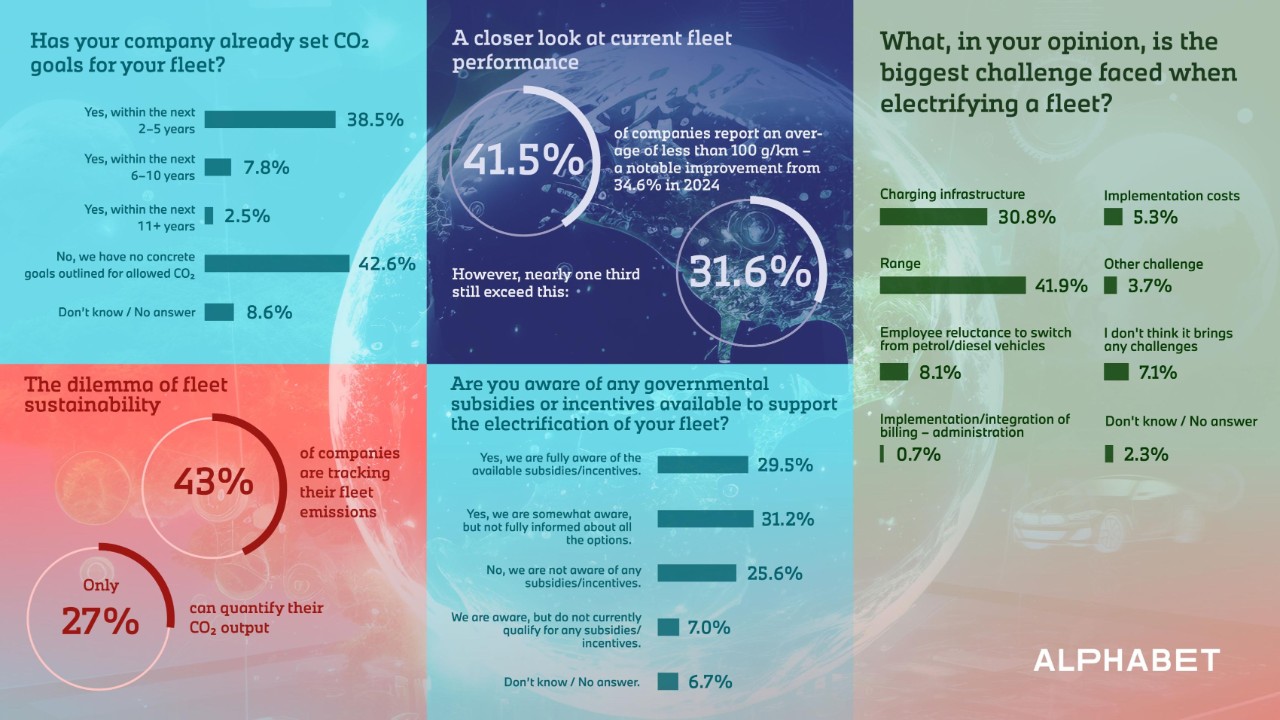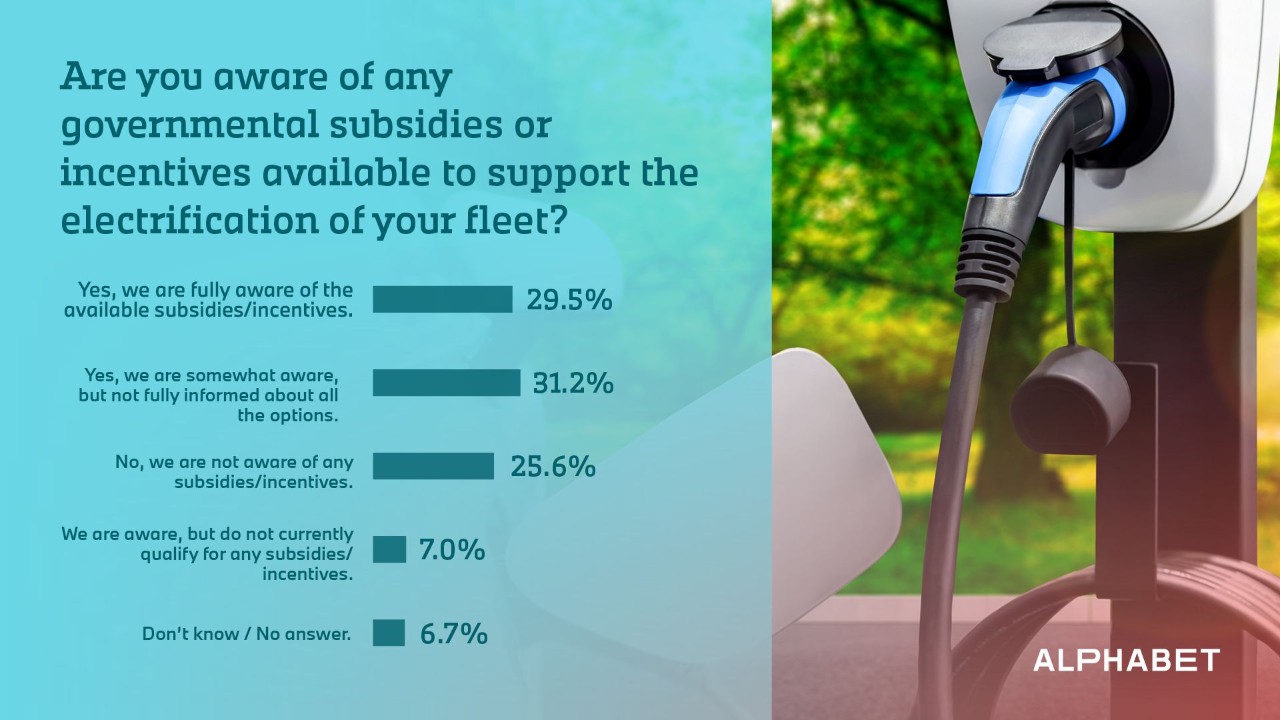- 27% of companies can accurately measure their CO₂ output
- Outdated methods for emission tracking remain common
- Nearly half of fleet managers feel underinformed about electrification and available support
- CSRD and similar initiatives have had little impact so far
MUNICH 13/05/2025 – European companies are collecting more emissions data than ever before – but have yet to fully leverage it. According to the latest European Fleet Emission Monitor (EFEM) by Alphabet, only 27% of companies can accurately quantify their fleet’s CO₂ output, despite a steady rise in tracking efforts. Based on responses from over 740 fleet managers across 12 countries, the report reveals a growing disconnect: digitalisation is advancing, sustainability is high on the agenda – yet most fleets remain stuck in outdated systems, overwhelmed by information, and unprepared for tightening regulations. In an increasingly high-stakes landscape, this inaction is no longer a passive choice – it’s a business risk.


Many businesses remain overwhelmed by unstructured data and outdated tools: 42% still rely on fuel-based estimates and 26% use Excel spreadsheets for tracking. This reliance on manual, fragmented systems makes it difficult for fleet managers to derive meaningful insights or respond effectively to regulatory and cost pressures. Despite the obvious need, the uptake of advanced digital tools has stalled, and the sector remains slow in embracing automation: only 7% of companies currently integrate AI into their fleet management, with just over 3% using it specifically for emissions reporting.
No plan, no progress: fleets without targets face rising costs and compliance risks
Furthermore, many companies are still navigating fleet sustainability without a clear direction. A staggering 43% have no CO₂ targets, and about a third don't monitor their fleet emissions at all. The CSRD, anticipated to prompt stronger action, has had limited effect so far, with just over 8% of companies reporting an impact on their fleet planning. However, there are signs of structural progress: over one-third of companies now have dedicated sustainability departments, and another 12% plan to establish one. These steps could pave the way for more consistent action in the future. Yet, the chasm between awareness and execution remains critical. Without defined targets and reliable monitoring, companies risk higher costs, missed incentives, and diminished competitiveness in an increasingly regulated landscape.
Knowledge gaps undermine electrification incentives
Despite the increased focus on electric vehicle adoption, 43% of fleet managers still feel under-informed about e-mobility developments and opportunities – a slight improvement on last year. This ongoing knowledge gap is not only hindering the pace of electrification but also diminishing the impact of available incentives. Over a quarter of companies are unaware of financial support schemes, and fewer than one in three fully grasp the benefits they could access. The result is a noticeable disconnect between well-intentioned policy and practical implementation – highlighting the need for stronger guidance, better communication, and more integrated support across the industry.

Discover our research report 2025
Claudia Bauer
International Marketing, Communications Manager



